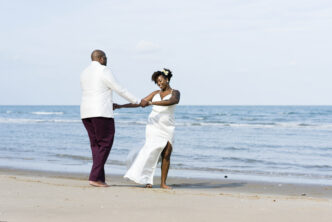Love knows no borders, and in today’s globalized world, it is more common than ever for people to form relationships with partners from different cultures.
This is a result of people’s migration for work, education, or family reasons. However, every relationship comes with its own set of challenges and triumphs, and this is no different for modern African relationships abroad.
This article explores the unique challenges and opportunities of gender roles in modern African relationships abroad.

Challenges of gender roles in modern African relationships abroad
One of the biggest challenges to gender roles in modern African relationships abroad is the different expectations that men and women may have about their roles in the relationship.
In some cultures, men are expected to be the breadwinners, and women are expected to be the homemakers, while in others, these roles are more fluid.
When couples come from different cultures, they usually have different expectations about what is expected of each partner, which can lead to conflict and misunderstanding.
Another challenge is cultural conflict. Couples often grapple with differences between the gender roles they grew up with in Africa and those prevalent in their adopted countries.
Furthermore, the distance that often separates couples in modern African relationships abroad can also be a challenge. When couples are living in different countries, it can be difficult to communicate and coordinate their lives, making it difficult to build and maintain a strong relationship.
Opportunities for gender roles in modern African relationships abroad
Despite the challenges, there are also opportunities for couples in modern African relationships abroad to create more egalitarian relationships.
Being in an environment that compels them to negotiate their roles in the relationship opens their minds to more equitable and fulfilling relationships.
Also, couples who come from different cultures have the opportunity to learn about each other’s customs and traditions, which helps them build a more understanding and compassionate relationship.
Moreover, the distance that separates couples in modern African relationships abroad can also be an opportunity for them to strengthen their communication skills.
When couples have to rely on technology to communicate, they learn to be more patient, and understanding helps them build a stronger foundation for their relationship.

How couples can negotiate gender roles in modern African relationships abroad
One important strategy couples need to adopt is to communicate openly and honestly about their expectations. They need to be willing to share their thoughts and feelings about gender roles, even if they are different from their partners.
Likewise, they should be willing to compromise. No two people will have exactly the same expectations about gender roles; therefore, couples need to be willing to meet each other halfway to create a mutually agreeable arrangement.
Finally, couples need to be patient and understanding. It takes time to adjust to a new culture and a new set of expectations, so couples need to be patient with each other and give each other time to learn and grow.
Conclusion on gender roles in modern African relationships abroad
Negotiating gender roles in modern African relationships abroad can be a challenge, but it can also be an opportunity to create a more fulfilling and equitable relationship.
By communicating openly, being willing to compromise, and being patient and understanding, couples can overcome the challenges and reap the rewards of a modern African relationship.
Infidelity in Diaspora Relationships and Its Consequences
Infidelity is any act of sexual, emotional, or romantic betrayal in a committed relationship. In our society today, infidelity is a topic that has garnered much attention and reaction.
Read this article to find out more about infidelity in diaspora relationships.















